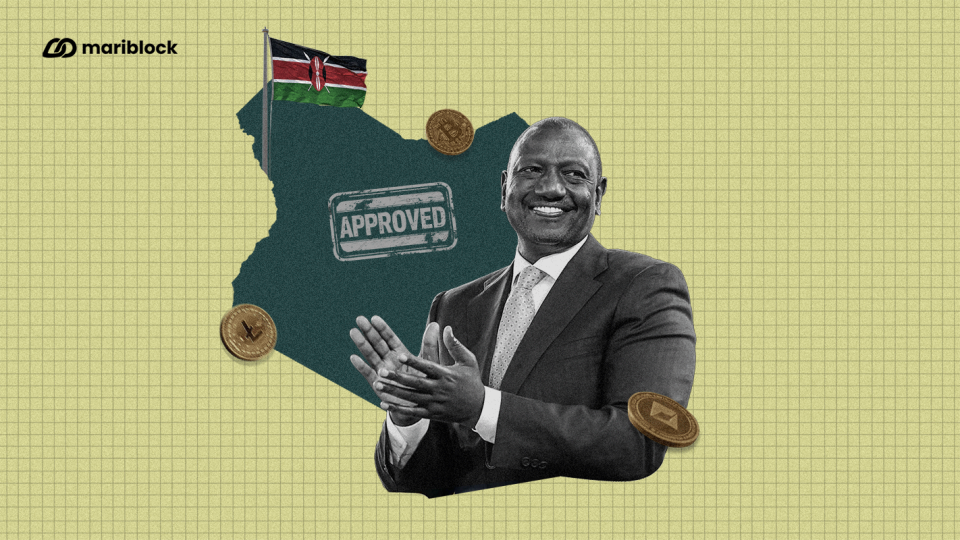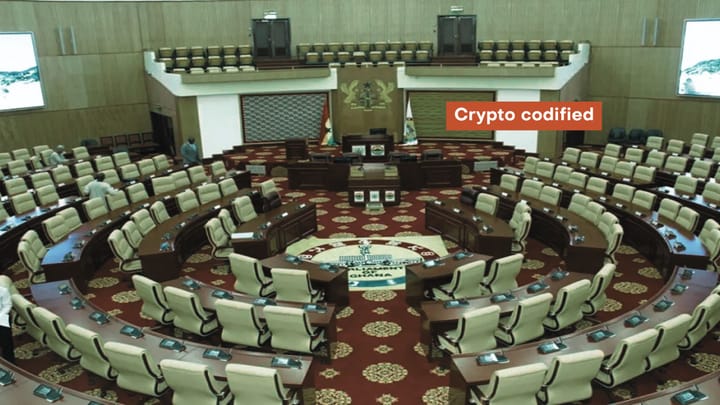Kenya’s crypto industry reacts as VASP Act becomes law
Stakeholders are saying the Act is a step in the right direction, as it provides legal backing to an ecosystem long in the shadows.

Kenya’s blockchain and crypto industry players are welcoming the passage of the Virtual Asset Service Providers (VASP) Act, 2025, calling it a long-awaited milestone for the country’s digital economy.
The law, which recently received presidential approval, is expected to provide a clear regulatory framework for virtual asset service providers while positioning Kenya among Africa’s more progressive crypto markets.
Quick background
- President William Ruto signed the VASP Act, along with seven other bills passed by Parliament, during a public ceremony on October 15. The Act has since been gazetted, and the official document is now publicly available.
- The final version of the Act contains subtle changes made to the bill passed by the National Assembly, including a modification to the regulatory authority.
- This new modification granted powers to the Kenyan cabinet secretary in charge of the country’s treasury to designate additional government agencies to provide regulatory oversight for the virtual asset ecosystem.
- In addition, the Act adds a mandatory requirement for licensed VASPs to open and maintain bank accounts in the country, as well as a prohibition of anonymity-enhancing features such as mixers.
- The law includes amendments to the Capital Markets Act, the Central Bank of Kenya Act and the National Payment Systems Act to add VASPs as reporting institutions.
What stakeholders are saying
- Chebet Kipingor, business operations manager at crypto exchange Busha, told Mariblock that the Act marks a major turning point for Kenya’s crypto ecosystem.
- According to her, the passage of the law grants legal credence and recognition to a space that has long been limited in expression and operations due to a lack of regulation. She said:
“The VASP Act is truly a watershed moment for Kenya’s digital finance ecosystem. For local exchanges like Busha, it brings something we’ve been hungry for: certainty. After years of operating in a grey zone, there’s now a clear roadmap, standards around governance, consumer protection and AML compliance.”
- Kipingor added that the crypto ecosystem in Kenya feels “acknowledged” by the institution of these rules, which allow for “regulatory engagement” rather than “regulatory silence.”
- For Yellow Card's Kenyan country manager, Peter Mwangi, the Act brings the assurance the pan-African exchange needs to scale its operations. He said:
"The new law is a strategic validation of our long-standing commitment to compliance and customer protection ... we view the Act as providing the much-needed legal certainty required for our continued scaling and institutional engagement."
- Kipingor, commenting on the efforts of crypto lobbyists in Kenya yielding fruit, told Mariblock that this can be regarded as only the beginning.
- Yellow Card, which was also part of these lobbying efforts, said that the sustenance of these lobbying efforts is crucial to the survival of the Kenyan crypto ecosystem. Mwangi said:
"We firmly believe that proactive regulatory engagement and public participation are essential for the long-term health and credibility of the digital asset industry in Kenya."
- Stakeholders plan to maintain contact with the Kenyan government to implement the new laws in a manner that allows for easy compliance without stifling innovation.
Why it matters
- Mariblock reported earlier in the month that the Kenyan VASP bill (at the time) had passed through all the stages of approval in the Kenyan parliament and was awaiting President Ruto’s assent.
- The bill is seen as a win for crypto lobbyists in Kenya, who have been engaging the government to repeal the controversial digital asset tax and help shape clear crypto regulations.
- This comes despite controversies within Kenya’s crypto community, including accusations that external influences sought to shape the lobbying process in favor of certain players over others.
- Most importantly, the Act struck out the creation of a new regulatory agency — considered widely as the brainchild of these external influences — in favor of granting regulatory oversight to the CBK and CMA.
ℹ️
Editor’s note: This is a developing story.



